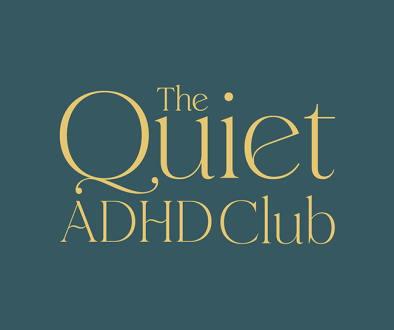Self-regulation: a guide for couples

- Self-regulation is essential for individuals and relationships to foster strong connections with others.
- Understanding yourself and your triggers is foundational to self-regulation.
- Couples who can effectively regulate their emotions are better equipped to handle conflicts.
- Techniques like mindfulness, time management, and stress management can help.
- Building this skill takes time and effort, but the rewards are significant.
Self-regulation, the cornerstone of emotional intelligence, is the capacity to manage and control one’s thoughts, emotions, and behaviours. It is the skill that empowers individuals to navigate life’s challenges with resilience, make sound decisions, and cultivate fulfilling relationships. While it may seem like an abstract concept, self-regulation is a tangible ability that can be developed and refined through consistent practice.
By understanding its components, building a strong foundation, and developing effective strategies, individuals can enhance their emotional intelligence, build resilience, and create a more fulfilling life.
Understanding self-regulation
Building a strong foundation for self-regulation requires a deep understanding of ourselves. By tuning into your thoughts, emotions, and behaviours, you can identify patterns and triggers that influence your responses. Setting clear goals provides a roadmap for personal growth and development. Moreover, cultivating a sense of curiosity about our own emotional landscape can foster a deeper understanding of ourselves. Mindfulness and journaling practices can be valuable tools in this process.
At its core, self-regulation is about being the captain of your ship. It’s the capacity to pause, reflect, and choose your response rather than reacting impulsively. This involves several key components:
- Emotional regulation. Managing and expressing emotions healthily.
- Impulse control. Resisting the urge to act on immediate desires.
- Attentional control. Focusing on relevant information and ignoring distractions.
- Goal-directed behaviour. Setting and achieving objectives while overcoming obstacles.
How self-regulation informs the couple dynamic
In couples therapy, self-regulation is often a central focus. Couples who struggle with chronic conflict or emotional reactivity frequently exhibit deficits in self-regulation. When one or both partners are unable to manage their emotional responses, it can escalate tensions, create misunderstandings, and erode trust. Conversely, when partners can effectively regulate their emotions, they are better equipped to handle disagreements, compromise, and navigate the inevitable challenges that arise in any relationship.
Moreover, self-regulation plays a crucial role in co-regulation, the ability to influence and be influenced by one’s partner’s emotional state. When partners can co-regulate effectively, they can create a sense of safety and security within the relationship. This allows for open and honest communication, empathy, and emotional support. Couples therapy often involves teaching partners how to co-regulate, which in turn strengthens their bond and resilience.
When partners can maintain composure during disagreements, they are more likely to engage in constructive dialogue rather than resorting to blame or defensiveness. By understanding their own emotional triggers and responses, partners can communicate their needs and boundaries assertively without resorting to aggression or withdrawal.
- Self-regulation is a key focus in addressing relationship conflicts.
- Poor self-regulation often leads to heightened tensions and damaged trust.
- Strong self-regulation enables couples to handle disagreements constructively.
- The ability to influence and be influenced by a partner’s emotional state is crucial for relationship health.
- Self-regulation contributes to a sense of security, open communication, and empathy within a partnership.
- Self-regulation facilitates clear and respectful expression of needs and boundaries.
Self-awareness: the foundation
At its core, self-regulation is about being the master of our own mind. It is the ability to pause, reflect, and consciously choose a response rather than reacting impulsively. This involves several key components: emotional regulation, impulse control, attentional control, and goal-directed behaviour.
Emotional regulation encompasses the ability to identify, understand, and manage your emotions in a healthy manner. Impulse control refers to the capacity to resist immediate gratification and make considered decisions. Attentional control involves the ability to focus on relevant information while filtering out distractions. Finally, goal-directed behaviour is the skill of setting clear objectives and persevering in the face of challenges to achieve them.
- Tune in. Pay attention to your thoughts, emotions, and behaviours. Identify patterns and triggers.
- Set goals. Clearly define what you want to achieve. If you’re unsure, start by identifying what you don’t want.
- Emotional curiosity. Explore your emotions. Practice mindfulness techniques like deep breathing and journaling to understand your emotional landscape.
Building your self-regulation toolkit
Once a solid foundation is established, individuals can begin to develop strategies for self-control. This involves cultivating the ability to pause and reflect before responding to a situation. By delaying gratification and considering alternative perspectives, individuals can make more informed decisions. Additionally, developing cognitive flexibility, the capacity to adapt to changing circumstances and challenge rigid thinking patterns is essential for effective self-regulation.
- Pause and reflect. Before reacting, take a moment to consider your options.
- Delay gratification. Practice resisting immediate impulses. You’d be amazed how much less you want that thing after even a few minutes of reflection.
- Cognitive flexibility. Challenge negative thoughts and explore different viewpoints.
Structure and organisation
Organisation might seem like the most mundane aspect of adult life, a chore to be ticked off the to-do list. Yet, it’s surprising how often overlooked this fundamental skill can be key to a harmonious relationship. It’s the often-ignored act of keeping things in order that can prevent many common relationship stressors. From shared finances to household chores, a well-organised life can significantly reduce the friction that often leads to couple conflicts and emotional dysregulation.
- Time management. Use tools and techniques to prioritise tasks and stay organised.
- Reflection. Regularly review your progress and identify areas for improvement.
- Self-care.
- Ensure you get enough sleep, exercise, and a balanced diet.
- Don’t hesitate to reach out to friends, family, or professionals for guidance.
Overcoming common challenges
While self-regulation is a lifelong journey, it is essential to acknowledge and address common challenges. Stress, procrastination, negative self-talk, and difficulty maintaining focus are obstacles that many people encounter. Implementing effective stress management techniques, breaking down tasks into smaller steps, practising positive affirmations, and incorporating mindfulness techniques can help overcome these hurdles.
Managing stress
Stress can significantly impact self-regulation. Effective stress management involves:
- Identifying stress triggers. This is the first step towards mitigating their impact.
- Practising relaxation techniques. This can calm your nervous system.
- Prioritising self-care. This can help you build resilience and recharge energy levels.
- Setting boundaries. This is essential to protect personal well-being and prevent overwhelm.
- Seeking support. This can provide valuable coping mechanisms and emotional reassurance.
Conquering procrastination
Procrastination can be a persistent challenge. These tips can help:
- Break down tasks. Dividing them into smaller, more manageable steps makes them less daunting and increases the likelihood of starting and completing them.
- Set deadlines. Establishing specific deadlines creates a sense of urgency and accountability.
- Create a conducive work environment. A clutter-free, organised workspace can enhance focus and productivity.
- Implement reward systems. Positive reinforcement can be a powerful motivator. Reward yourself for completing tasks, even if it’s only a small treat.
- Build self-discipline. Consistent effort and perseverance are essential for overcoming procrastination.
Embracing mindfulness
Mindfulness, often misunderstood as merely relaxation or meditation, is a far more profound practice. It’s about cultivating a moment-to-moment awareness of one’s thoughts, feelings, and bodily sensations without judgement. Contrary to popular belief, mindfulness isn’t about escaping reality or achieving a state of perpetual bliss. Instead, it’s a practical tool for navigating life’s challenges with greater clarity, resilience, and compassion.
Mindfulness is a powerful tool for self-regulation.
- Focus on the present moment.
- Observe thoughts without judgement.
- Cultivate awareness of bodily sensations.
Practice self-compassion
Creating a supportive environment is crucial for sustaining self-regulation efforts. Prioritising physical and mental well-being through adequate sleep, nutrition, and exercise is fundamental. Building a strong support network of friends, family, or mentors can provide encouragement and guidance. Furthermore, celebrating successes along the way reinforces positive behaviours and motivates continued progress.
- Forgive yourself. Everyone makes mistakes. Cultivating self-compassion involves understanding that imperfection is a natural part of being human.
- Challenge negative thoughts. Negative self-talk can be a significant obstacle to well-being. For example, if you catch yourself thinking, “I always mess things up,” reframe it to something like, “That’s not like me; I am capable of learning from my mistakes and improving.”
- Focus on strengths. Recognising and appreciating your own abilities fosters a positive self-image.
- Surround yourself with support and positivity. Strong social connections play a vital role in emotional well-being.
The power of co-regulation
Human beings are inherently social creatures, and our emotional states are influenced by those around us. Acknowledging this is an important part of improving our interpersonal relationships.
Co-regulation is the interpersonal process of influencing and being influenced by another person’s emotional state. It’s a dynamic where individuals learn to regulate their emotions through interactions with others.
This process is particularly important in early childhood development, but it continues to be relevant throughout life. Co-regulation involves providing support, empathy, and guidance to help others manage their emotions, ultimately fostering a sense of connection, trust, and mutual understanding.
- Interconnected emotional states. Humans are influenced by the emotions of those around them.
- Mutual influence. Co-regulation is the process of shaping and being shaped by another’s emotional state.
- Lifelong skills. While crucial in early development, co-regulation benefits relationships at all life stages.
- Building strong connections. Co-regulation fosters empathy, trust, and understanding between individuals.
- Emotional support. By offering support and guidance, individuals can help others manage their emotions effectively.
Be patient with yourself
Self-regulation is the skill that allows us to navigate life’s challenges with resilience. It helps us to make sound decisions, and build strong relationships.
While self-regulation might sound complex, it is a skill that can be improved with consistency and practice.
Mastering self-regulation takes patience, persistence, and self-compassion. By incorporating these strategies into your life, you can enhance your emotional intelligence, build resilience, and achieve greater fulfilment.
Remember, small steps can lead to significant transformations.



